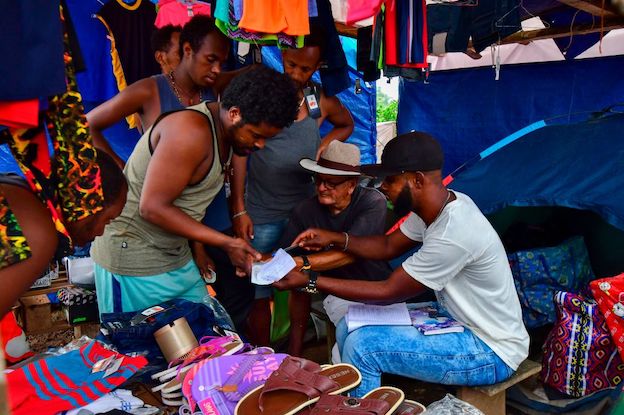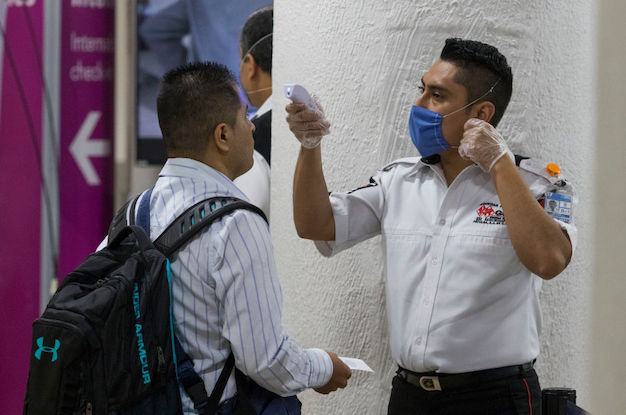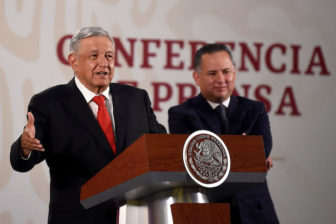Running for office was never in Gabriel Silva’s plans. The 30-year-old lawyer, who on July 1 will begin his first term as a member of Panama’s Congress, was moved to enter politics out of desperation.
“Seeing the same corrupt politicians who have been there since I was born seeking re-election made me feel like I had to do something, and I had to do it now,” Silva told AQ.
Silva, who previously specialized in anti-corruption efforts, promised voters in May’s national elections that he would use that experience to try to clean up politics. The pitch worked: He was elected to Congress and joined the first independent caucus in the body’s history.
“Political parties are highly distrusted because of corruption scandals and a lack of transparency,” Silva said. “It is always the same people making the decisions, or members of their family.”
The five-member independent caucus also includes Juan Diego Vásquez, a 22-year-old criminology student who received more votes than any other congressional candidate in this summer’s election. Silva hopes that the influx of independent members will jar loose entrenched interests that have run Panamanian politics for decades. Voters seem to agree: Only 15 out of the 51 incumbent members who sought re-election in May managed to retain their seats. It’s a striking difference from the last election in 2014, when almost 55% of the 71-member body was re-elected.
That shift has been helped along by recent civil society and media efforts to publicize corruption within the legislature. #NoALaReelección (No to re-election), a grassroots movement that emerged following revelations of widespread corruption in Congress, is credited with helping shift public opinion ahead of the elections. But before that, it was Mary Triny Zea, a reporter from newspaper La Prensa, who spearheaded the investigations that brought that corruption to light.
In 2016, La Prensa received an anonymous tip that led Zea to uncover a scheme that involved every major political party. Her initial reporting brought into question $14 million in donations and $68 million in temporary employment contracts that congress members seemingly used to funnel money into their – and often their family members’ – pockets.
“Seeing how politicians had mocked the country (through this corruption scheme) led to the campaign against re-election,” Zea said.
Zea’s six-month investigation, released in La Prensa in 2017, earned prizes and international recognition – and opened a Pandora’s box of corruption in other parts of the government. Zea turned her attention to the budget for sports subsidies, for example, which had increased from $500,000 in 2013 to $14 million in 2015. Her investigation showed that 90% of the payments in question had gone to sports federations linked to politicians. The case, which came to be known as Caso Pandeportes, added fuel to the fire of the #NoALaReelección campaign.
“(Zea’s) work was what articulated our indignation, she put the pieces together of a puzzle no one was clear about,” Ivan Chanis, Silva’s campaign manager and one of the founders of #NoALaReelección, told AQ.
While Zea’s investigations have not yet led to the prosecution of any elected officials, the results of her reporting and the subsequent #NoALaReelección campaign have had an effect. Not only did most of those involved in the scandals seeking re-election lose their seats, but independent candidates like Silva were also able to take advantage, said Chanis.
In addition to the five independent candidates who made it to Congress, for the first time three independent candidates also received enough public support to run in the presidential election. One of them, Ricardo Lombana, came in third with almost 20% of the vote.
“Even if there wasn’t a judicial punishment we achieved an electoral punishment,” said Annette Planells, head of Movin, a nonprofit that promotes anti-corruption legislation and supported the movement. “The #NoALaReelección campaign sends a message to congress members that if they don’t stand by their word we are going to retaliate in the next elections.”
Silva and his independent colleagues are all working on their own legislation, but he said their first joint legislative proposal would be to reform internal rules of Congress to solve issues like the lack of transparency in employment contracts.
“Our stand is to start by cleaning house … We have to fix Congress from the inside,” Silva said.
For Zea, the most important success of the #NoALaReelección was to help Panamanian voters make informed decisions about their democracy.
“My job as a journalist is not to judge. My job is to uncover corruption to give the people tools to hold the authorities accountable,” Zea said.
—
Uriegas is an editorial intern for AQ.






